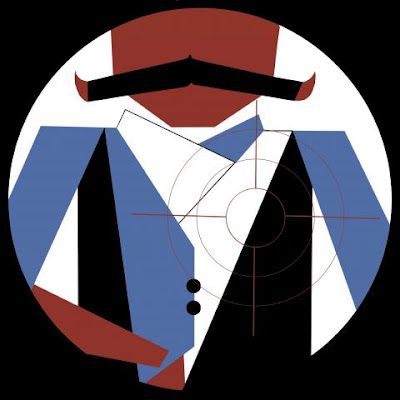Kurt Weill's German theatre works written with the expressionist playwright Georg Kaiser tend to get less exposure than Weill's collaborations with Bertolt Brecht. But Weill and Kaiser wrote three major works, the operas Der Protagonist (1926) and Der Zar lässt sich photographieren (1928), plus the musical play Der Silbersee (1933) (Weill first collaborated with Brecht in 1927 and Die Dreigroschenoper came in 1928). The first two are comic operas, and Weill intended them as a double bill, and the third is a strange hybrid of opera and play. The operas belong to the genre of Zeitoper, short, satiric pieces which comment on the times, a style which evaporated rapidly on the rise of the Nazis.
This year we have a chance to see two of Weill and Kaiser's collaborations. In the Autumn, English Touring Opera is producing The Silverlake (Der Silbersee) and tomorrow (4 May 2019) The Tsar wants his picture taken (Der Zar lässt sich photographieren) is being performed at the Bloomsbury Theatre.
The Tsar wants his picture taken features baritone Edmund Danon (Tsar), Anna Sideris (False Angele), Patricia Auchterlonie (Angele) and Joanna Harries (Leader), with full orchestra conducted by Johann Stuckenbruck. The performance is part of University College, London's (UCL) Performance Lab which combines a series of performances by artists, dancers, opera singers, stand-up comedians and UCL academics combined with a season of symposiums and discussions. So that for the opera, new light has been shed on the implications of the comic plot by academics from UCL Hebrew and Jewish Studies, and the performance will be followed by a discussion.
The opera was condemned as degenerate, which might seem strange to us today except that we are now coming to understand that Jews tended to dominate photography at the time, so that the contemporary audience would understand the comedy in an entirely different way to a modern one. Amazingly, the orchestra is using the original 1927 parts, complete with vintage graffiti!
Other performances as part of Performance Lab include Muso from Impropera (7 May 2019), the improvising opera company, whose performance will be inspired by objects from the UCL collections!
Further information from the UCL Culture website, and the Bloomsbury Theatre website.
Friday, 3 May 2019
Understanding why the Tsar wanted his picture taken: Kurt Weill & Georg Kaiser's opera in a rare revival
Labels:
preview
Subscribe to:
Post Comments (Atom)
Popular Posts this month
-
Brecht & Weill: Rise and Fall of the City of Mahagonny - English National Opera (Photo: Tristram Kenton) Brecht & Weill: Rise and...
-
Britten: Peter Grimes , Act One, Scene One - Opera North, 2026 (Photo: James Glossop) Britten: Peter Grimes ; John Findon, Philippa Boyle, ...
-
Oxford Philharmonic Orchestra (OPO), artistic director Marios Papadopoulos, has done occasional concert performances of opera, but this Sept...
-
Norwich Philharmonic Orchestra and Chorus who perform Walton's Belshazzar's Feast at this year's Festival By far the largest a...
-
Foyer of Wigmore Hall in 1901 when it was Bechstein Hall (Photo courtesy of Wigmore Hall) Like many major cities, London's concert halls...
-
Boston Lyric Opera (BLO), New England’s largest and most enduring opera company, is in celebratory mood. Founded in 1976, 2026 is its 50th y...
-
Gimnazija Kranj Symphony Orchestra I get all sorts of mail, people sending my information on concerts and recordings. Everything gets gl...
-
Operabase CEO, Ulrike Köstinger Since its founding in 1996 by Mike Gibb, the Operabase website has become somewhat ubiquitous in the opera w...
-
Strijkkwartet Biënnale Amsterdam at the Muziekgebouw Amsterdam (Photo: Marco van Es) Strijkkwartet Biënnale Amsterdam; Muziekgebouw Amsterd...
-
Handel, Corelli, Sammartini, Geminiani, Castrucci, Blow, Smith; Olwen Foulkes, Nathaniel Mander, Carina Drury, Toby Carr, Tabea Debus;...


.jpg)









No comments:
Post a Comment